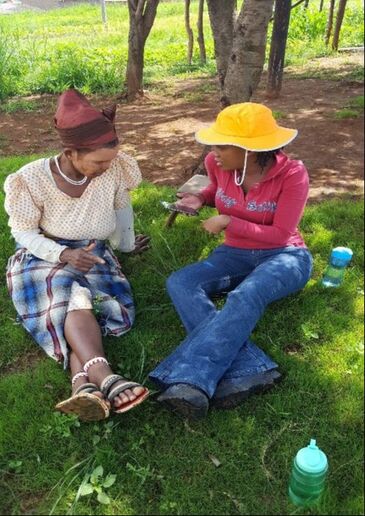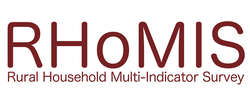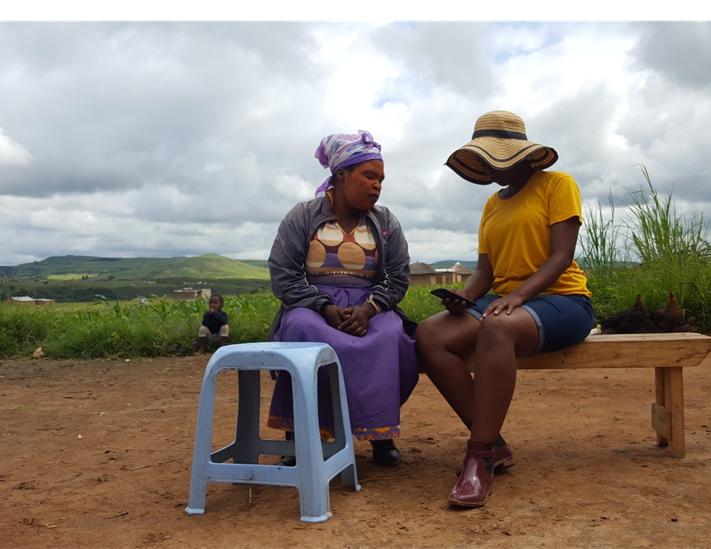 Authored by Neo Mathinya. PhD candidate at WUR (Netherlands) and a lecturer at UFS (South Africa). Using her agronomy and soil science background to find practical and effective methods for rural/informal farming households in South Africa to intensify/optimize their farming production Note: Data collection has been suspended due to the Corona virus outbreak. Nonetheless, we will resume when it safe and practical to do so again. Until then, here is a brief overview of my study and the study area. As researchers, the world is our oyster. From a soil sample analyzed in a laboratory to growth chamber experiments, we have infinite opportunities to be good and do good. For the communities we serve, we come up with all sorts of norms, thresholds, hacks and even throw in some DIY tricks BUT do they need that? Do they want it? Can they afford it? Will they implement it? Will it improve their lives? This is only a few of the many questions we cannot definitively answer without getting in touch with the people we claim to serve. For someone with virtually no social science background like me, getting answers to these questions was a daunting task but I had to take the leap. It wasn’t until my first encounter with RHOMIS in 2018 that my confidence and courage in tackling this part of the work (rocket science disguised as social sciences) grew/developed. I attended an interactive course on farming systems and rural livelihoods in Uganda during which RHOMIS was part of the methodology for the assigned tasks. Although we used the printable version for the 2 weeks long course, I was impressed with how the different indicators of farming livelihoods were encompassed in this handout. This is when the seed was planted and I thought to myself, my research will benefit immensely with the use of this survey. Does it get better? It definitely did for me. Having this awesome survey conducted on ODK is amazing. With the invaluable assistance from Sam Adams and his team at Rhomis, I was ready to start data collection in less than a month of contacting them. Enumerator training also went by smoothly as a testament to how user-friendly it is. I definitely recommend the use of RHOMIS for anyone seeking to answer socio-economic related questions. Multidisciplinary research can benefit from tools like these, which are easy to understand as well as comprehensive and able to deliver the desired outcome. I must say, the feature that allows you to obtain signatures really impressed the farmers and made us seem very tech savvy. “How can a finger write on a phone”? They consistently asked in amazement, this one got even the tough respondents smiling and was very helpful in easing the respondents.  Intensifying small scale farming in the former homelands of South Africa South Africa is a developmental state with almost half of its population living in rural areas characterised by higher poverty levels and limited employment opportunities than urban areas. A vast majority of small scale farmers are among these rural communities, that many of which formed part of the South Africa’s former homelands. Homelands were established as by the then apartheid government to serve as labour reservoirs, housing the unemployed and releasing them when their labour was needed. As such, homeland economies were not developed and farming was not very viable largely because of poor resource endowment. Hence, homelands only offered a limited range of livelihood opportunities. It is therefore not surprising that small scale farmers in the former homelands are featured as key to achieving most of South Africa’s 2030 National Development Plan (NDP) goals of unemployment and poverty reduction. These NDP goals are also aligned to the Sustainable Development Goals (SDGs), in particular SDG 2 (End hunger, achieve food security and improved nutrition and promote sustainable agriculture). Hence, the importance to understand small scale farmers’ resource endowments, how they allocate these resources, how they farm, the available natural resources at their disposal and the livelihoods benefits from farming. Such knowledge is needed to understand the actual objectives of farming (food self-sufficiency; food security; earning an income; nutrition or a buffer) and the prospects of small scale farmers to sustainably intensify their production. The diversity of farming systems requires that development strategies, interventions and policies be tailored to farmers’ different needs and opportunities. This investigation is therefore intended to provide a holistic analysis of small scale farming in these areas. The study will be conducted in Emmaus and Thaba Nchu villages, which used to form part of the then Kwazulu and Bophuthatswana homelands respectively.
0 Comments
|
RHoMIS BlogThe RHoMIS blog is written by a community of practice. The COP is made up of RHoMIS users and creators from across the world. Here we share their stories of how RHoMIS is helping to record and analyse household data. Archives
May 2020
Categories
All
|


 RSS Feed
RSS Feed